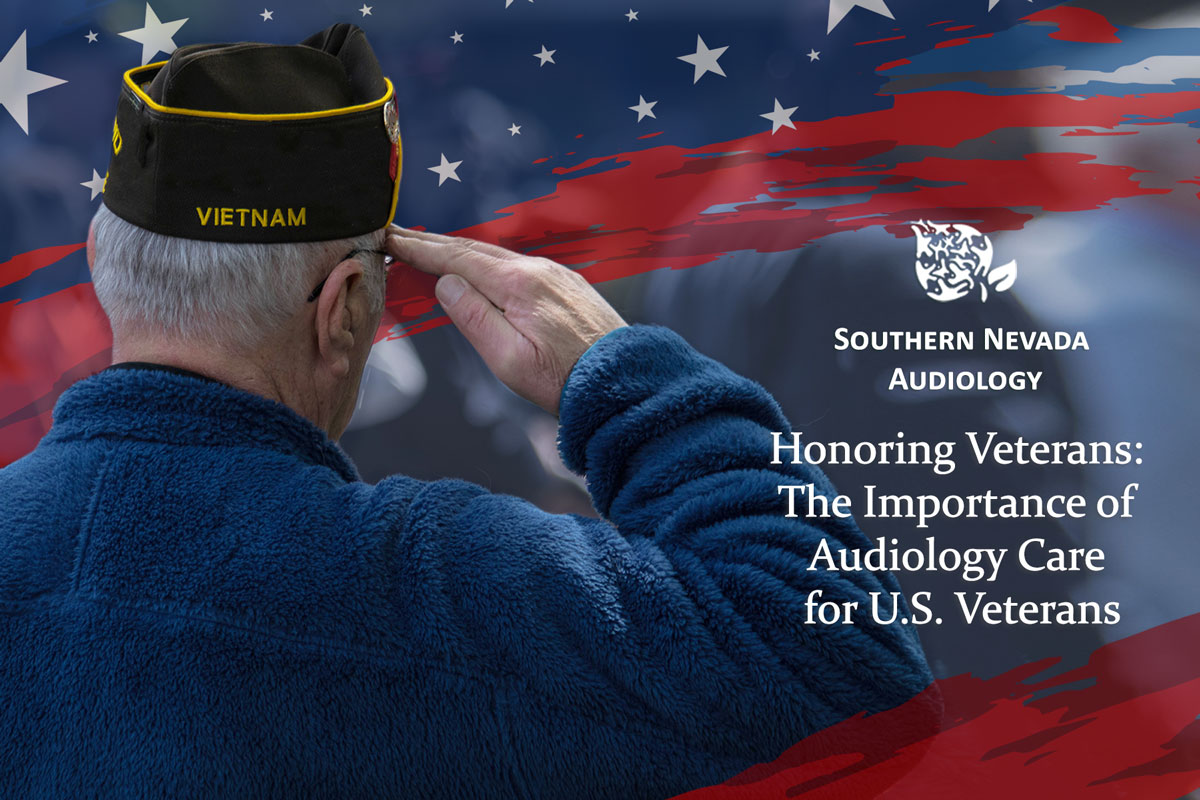As we honor Veterans Day, we recognize the sacrifices and service of the millions of U.S. veterans who have bravely defended our country. Their commitment is not only a source of pride but also a reminder of our duty to care for them upon their return. One area often overlooked in veteran healthcare is audiology, which addresses hearing and balance issues that many veterans face after active duty.
Why Audiology Care Matters for Veterans
The connection between military service and hearing health issues is significant. Veterans are exposed to high-decibel environments such as combat zones, aircraft, and heavy machinery. Prolonged exposure to these intense sounds can lead to noise-induced hearing loss, tinnitus, and other auditory challenges. In fact, hearing loss and tinnitus are the two most common service-related disabilities among veterans, affecting nearly 1.3 million veterans each year.
Audiology care for veterans goes beyond just hearing aids and treatment for tinnitus. It encompasses a range of services that include prevention, diagnosis, and rehabilitation for hearing and balance issues. Addressing these challenges can improve the quality of life for veterans, helping them stay connected with loved ones, manage stress, and maintain independence.
Common Audiological Issues for Veterans
Noise-Induced Hearing Loss (NIHL): Constant exposure to loud noises, often above 85 decibels, is common in military settings. Hearing damage can occur almost instantly during training or in combat scenarios, leading to long-term hearing issues.
Tinnitus: Often described as a ringing, buzzing, or hissing sound, tinnitus is frequently reported among veterans. This persistent sound can disrupt daily activities and sleep, leading to fatigue, anxiety, and difficulty focusing.
Vestibular (Balance) Disorders: Certain roles and duties in the military expose veterans to vibrations, blasts, and physical impacts that can affect the inner ear’s balance system. Vestibular disorders can cause dizziness, vertigo, and difficulty maintaining equilibrium, complicating day-to-day life.
Hyperacusis: Increased sensitivity to sound is another challenge veterans may face, particularly if they have experienced traumatic or high-stress environments. Hyperacusis can make it uncomfortable for them to be around normal levels of noise, making social situations difficult.
The Role of Audiologists in Veterans’ Care
Audiologists are instrumental in diagnosing, treating, and managing hearing and balance disorders in veterans. By performing assessments and utilizing advanced technologies, audiologists can tailor treatment plans to the specific needs of each veteran, addressing not only the hearing issues but also any related emotional and psychological effects.
For instance, audiologists can provide specialized hearing aids, tinnitus management strategies, and balance rehabilitation programs. These services can be life-changing, helping veterans regain the ability to engage fully with family, friends, and their communities.
Recognizing Veterans Day with a Commitment to Hearing Health
This Veterans Day, let’s honor the service of U.S. veterans by recognizing the importance of audiology care in their health journey. While a simple thank you is always meaningful, we can go a step further by advocating for expanded audiology services, supporting veterans’ access to care, and raising awareness about the prevalence of hearing issues among veterans.
Veterans have given so much to protect and serve us. As a society, we can give back by ensuring they have the care and support they need, including the audiology services that can make a lasting difference in their lives. Whether through donations, supporting veteran-focused healthcare initiatives, or simply spreading the word, we can all play a part in honoring veterans’ service on Veterans Day and beyond.

